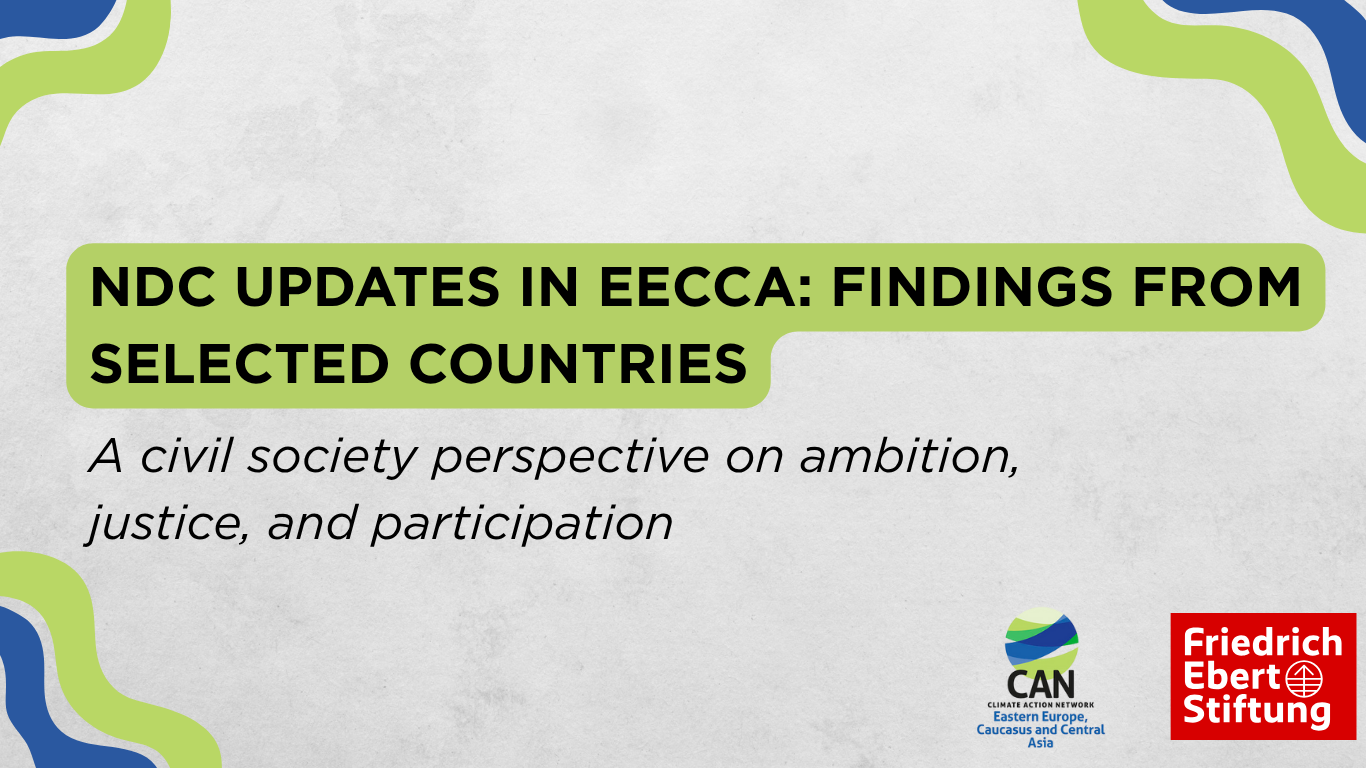
Climate Action Network Eastern Europe, Caucasus and Central Asia (CAN EECCA), in partnership with the Friedrich Ebert Foundation (FES), has prepared an overview of the current nationally determined contributions (NDCs) of Armenia, Azerbaijan, Belarus, Kazakhstan, Kyrgyzstan, and Moldova.
In the run-up to COP30 — the 30th Conference of the Parties to the UNFCCC — civil society across the region expects governments to present new climate commitments. To inform this process, CAN EECCA has developed a set of recommendations for stronger, fairer, and more ambitious NDCs, which are available in the full publication.
The analysis examines not only the countries’ climate ambitions and energy strategies, but also addresses key issues of social justice, human rights, public participation, and gender equality.
Key Findings and Recommendations
- Regional Vulnerabilities. The economies of the region remain heavily dependent on fossil fuels, while agriculture and water resources are increasingly exposed to climate risks. Weak institutional frameworks and limited public participation undermine resilience to these challenges.
- Necessary Actions. Countries need to raise ambition in their new NDCs, include clear interim targets for 2030 and 2035, phase out fossil fuel subsidies, and accelerate the transition to renewable energy and energy efficiency.
- Just Transition. Protecting jobs and livelihoods in vulnerable sectors, supporting women, youth, and local communities, and ensuring open and inclusive decision-making processes remain essential conditions for building resilience and fairness into national climate strategies.
The full analysis, including country-specific findings and recommendations, is available here.
This project has been supported by the Friedrich-Ebert-Stiftung (FES). The views and opinions expressed in this publication do not necessarily reflect those of the FES.
